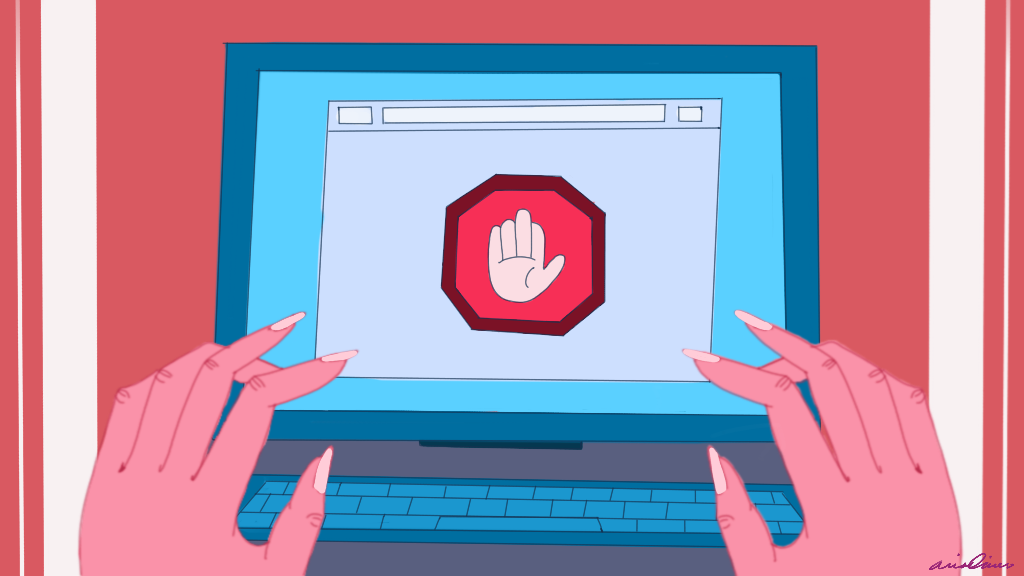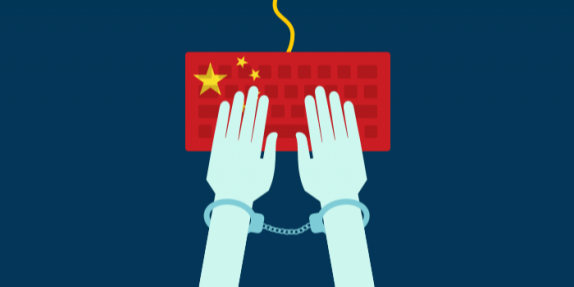Censorship: There’s An App For That
As Apple holds the key to what is or is not present on their infamous app store; they control what information people are exposed to on their iPhones, iPads, and Macs. As Apple digs deep into the software codes of each app, they block apps that they believe promote harmful behavior such as poor taste, the enablement of surveillance, as well as apps that could potentially steal users’ money or data.
The aftermath of Apple weeding out what apps they deem “safe” has the dangerous potential to dictate how people utilize their technology, and various forms of communication. Apple is known for being less permissive than other tech companies when it comes to screening apps. Apple claimed that last year they reviewed 100,000 apps weekly, and rejected around 40 percent.

The censorship is more present in different countries around the world. For example, in China, Apple possesses the power to enable the government to block apps that it believes breaks laws, such as The New York Journal times.
Another issue that comes into question is whether or not Apple shuts out their apps or makes them more difficult to find in order to help its own apps or various internet services. Many people suggest that Apple should let go of the reins of regulation when it comes with their app store, that anyone should have the ability to post anything they feel inclined to.
Skewing Politics on Facebook
Via social media, lies travel faster, and farther than they ever have before. This is a very serious problem that large internet companies have been in the process of tackling. Twitter has refused to accept any political-related advertisements at all, while Facebook takes the opposite approach of allowing people to evaluate the pros and cons of paid pitches from political candidates. The issue of politicians twisting and ignoring the truth on Facebook has become a growing problem, that has gone unnoticed by few.
Facebook has claimed that it will start giving users the option to be-rid their feeds of political ads, commercials about social issues, and similar paid messages. This leaves a large grey area of what should or should not be allowed on feeds.

Censorship: What is Too Much vs. Too Little?
The Internet seems to be stuck in a teeter-totter-like balance between what level of censorship is justified, as what is not. Websites like Facebook, Twitter, and Google continue to struggle with what content they should allow, and what content they should remove from from their sites.
In regard to the First Amendment, the government cannot censor speech under particular circumstances, therefore, they remain on the side of little censorship. In contrast, private actors such as newspapers face no such restrictions. They are allowed to choose what content they desire to have presented.
Internet platforms are a new phenomenon, private entities that are protected by the First Amendment but not required to publish anything. As long they do not violate other laws, such as child pornography, they are able to allow or disallow any content that they want. Facebook has come under fire in the past when Texas Republicans Rep. Joe Barton and Sen. Ted Cruz made complaints to Facebook CEO Mark Zuckerburg about “censoring conservative bloggers,” they believed that Facebook’s policies erred on the side of removing content that others wished to remain. In contrast, there have been other calls for platforms to eliminate content on their sites that does not belong.

It is difficult to assess the right balance of allowing content to exist freely or to face restrictions as increasingly complex rules develop for what is acceptable. Censorship is called into action more often when harassment on social media becomes real and vicious. But, the justification behind these cruel words changes in the eye of the beholder. A variety of approaches are employed to create these restrictions, such as algorithms that are greatly based on judgment. These judgement based decisions are bound to be controversial.
Simply acknowledging that there is a choice between too much and too little censorship, helps achieve a more socially acceptable approach. Transparency is so important in the censorship decision making process and powerhouse platforms are making steps in the right direction. Google’s transparency reports provide insights on how to address the issue. Facebook is acting in a similar fashion as reasons why certain complaints resulting in no action are listed on their sites. With information that is easily accessible, the public is able to better understand the balance that platforms are trying to successfully handle, and the process of how they decide the level of censorship they deem necessary.



